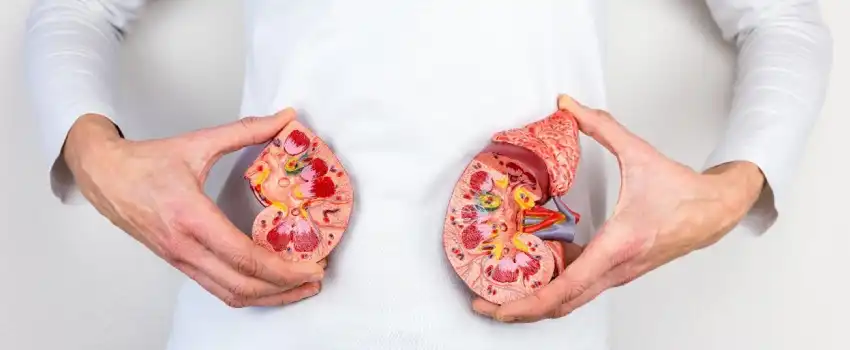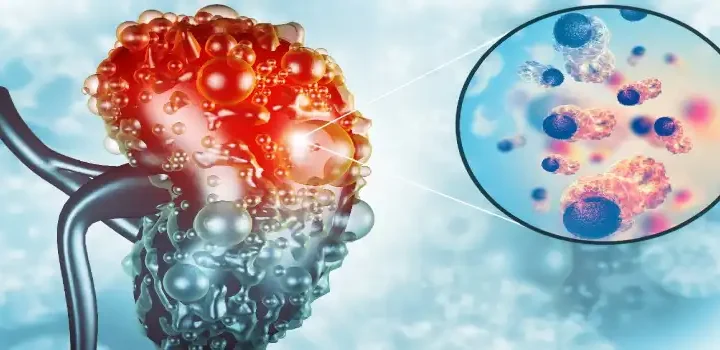Did you know more than 37 million American adults are living with kidney disease and most of them don’t know that they are suffering from kidney disease?
Detection of chronic kidney disease (CKD) can be a complex procedure, as kidney damage has already occurred when signs and symptoms appear. For this reason, kidney disease is known as a ‘silent condition’ and most people with early stages of CKD are unaware of it.
You might have few signs or symptoms in the early stages of chronic kidney disease. Until the condition is advanced, you may not realize that you have kidney disease.
For early detection, it is important to be aware of signs and symptoms instead of watching for later-stage symptoms and then taking action. You may be at risk for CKD if you have high blood pressure or diabetes. It is suggested to get a checkup once a year for any evidence of kidney disease and to learn your estimated glomerular filtration rate (eGFR). To measure your creatinine levels and help determine your level of kidney function, your physician can give you a blood test. Glomerular Filtration Rate (GFR) is derived from your blood creatinine, your age, race, gender, and other factors.
Understanding chronic kidney disease symptoms-

- Dry and itchy skin – Kidneys remove extra fluid and waste from your body, help make red blood cells, help keep bones strong, and maintain the right amount of minerals in your blood. Dry and itchy skin can be a sign of mineral and bone disease that is often accompanied by advanced kidney disease when there is no right balance of minerals and nutrients in your blood, as the kidneys are no longer able to maintain the right balance. High levels of phosphorus in the blood may cause itching.
- Trouble sleeping –Toxins stay in the blood rather than leaving the body through the urine when the kidneys are not filtering properly. This can make sleeping difficult.
- Constant puffiness around your eyes –Protein in the urine is an early sign that shows that the kidney’s filters have been damaged, which allows the protein to leak into the urine. Kidneys are leaking a large amount of protein in the urine, rather than keeping it in the body which may cause puffiness around your eyes.
- Swelling in your hands, ankles, and feet –Decreased kidney function can cause sodium retention, which results in swelling in your feet and ankles. Swelling in the lower extremities may also be a sign of liver disease, heart disease, or a problem with chronic leg veins.
- Feeling tired, having less energy, or having trouble concentrating – One can feel tired, weak, and find it hard to concentrate due to a severe decrease in kidney function which can lead to a building up of toxins and impurities in the blood. Also, one of the complications of kidney disease is anemia, which can cause fatigue and weakness.
- Poor appetite – Building up toxins due to damaged kidney function may cause you to lose your appetite, and you can feel full or too sick or tired to eat.
- Need to urinate more often – Feeling the need to urinate more often, especially at night, can be a sign of kidney disease. The urge to urinate can increase when the kidney’s filters are damaged. This may also be a sign of a urinary infection or enlarged prostate in men.
- Blood in your urine – Kidneys help to maintain blood cells in the body and filter waste from the blood to create urine. Blood cells may start to “leak” out into the urine when the kidney’s filers have been damaged. Blood in the urine may be an indication of tumors, kidney stones, or an infection in addition to kidney disease.
- Foamy urine –Excessive bubbles in the urine are an indication of protein in the urine. Large amounts of protein in your urine, called proteinuria, can be a sign of kidney disease.
- Muscle cramping – Imbalance in the levels of sodium, calcium, potassium, or other electrolytes may cause interruptions in how nerves and muscles work. Legs cramping may also be a sign of poor kidney function.
- High blood pressure– High blood pressure may be caused due to excess fluid and sodium buildup as a result of kidney disease. Damage to blood vessels in the kidneys may be due to high blood pressure which also leads to the worsening of kidney disease over time.
One can start taking steps to slow the progression of kidney disease. It is better to get yourself checked by a physician in case you report signs or symptoms.
To schedule an appointment with us, please visit – https://clinicalrenal.com/all-locations/. We are dedicated kidney specialists serving Southeast Pennsylvania for over 40 years.

